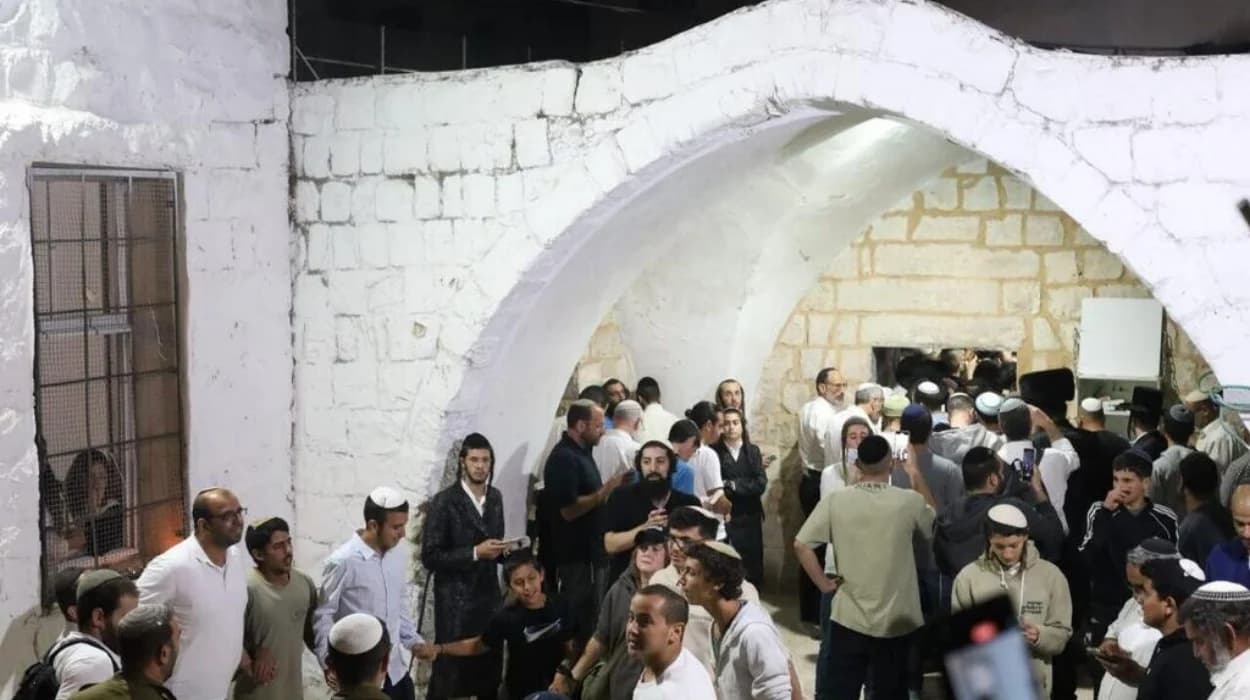Coalition lawmakers in Israel are advocating for the Israeli
Defence Forces (IDF) to be stationed at Joseph's Tomb in Nablus, seeking to
secure and assert control over the site amid ongoing tensions. This push has
sparked political and security debates about sovereignty, religious
sensitivities, and regional stability.
What is the current status of Joseph's Tomb in Nablus?
Joseph's Tomb is a religious site located in the Palestinian
city of Nablus in the West Bank. It is traditionally revered by Jews as the
burial place of the biblical patriarch Joseph. Control of the site has been a
point of contention between Israelis and Palestinians, with periodic clashes in
the area, especially during visits by Israeli worshippers under IDF protection.
Why are coalition lawmakers demanding an IDF presence now?
As reported by various political correspondents, coalition
lawmakers in Israel argue that an enduring IDF presence in Joseph's Tomb is
necessary to ensure the security of Jewish worshippers and maintain Israel's
sovereignty claims over the site. They emphasize the need to protect the tomb
from vandalism and attacks amid rising tensions in the West Bank. This
initiative comes amid broader political efforts to consolidate control over
contested religious sites, which hold significant symbolic value in
Israeli-Palestinian relations.
Who are the main political figures behind this push?
While detailed names of all coalition lawmakers leading the
initiative have not been explicitly listed in the publicly available reports,
sources indicate that right-wing members of the governing coalition, known for
their strong stance on security and territorial claims, are at the forefront.
They are lobbying the Prime Minister’s office and the Defence Ministry to
authorize the deployment of IDF troops in Nablus specifically for this purpose.
What has been the reaction from Palestinian authorities and residents?
Palestinian officials and residents of Nablus have strongly
opposed the proposed IDF presence. They view it as an infringement on
Palestinian sovereignty and a provocative maneuver likely to exacerbate
tensions. Local Palestinian leaders have condemned the move as a threat to
peace and stability and have warned it could spark violent confrontations.
How does the security situation in Nablus influence this proposal?
Nablus has experienced frequent episodes of unrest and
clashes between Israeli forces and Palestinian militants. According to security
analysts, the city is a hotspot in the West Bank, with multiple factions
involved in anti-Israeli activities. The lawmakers advocating for the IDF
presence highlight that establishing a permanent military footprint at Joseph’s
Tomb could serve as a deterrent to attacks and protect both the site and
Israeli civilians visiting it.
What are the potential implications of this military deployment?
Experts warn that deploying the IDF in Joseph's Tomb risks
escalating violence in an already volatile area. Palestinian communities may
view the move as an occupation of a religious site and respond with protests or
attacks. Additionally, it may complicate diplomatic efforts aimed at
negotiating peace or reducing tensions in the West Bank. The international
community, including mediation bodies, tends to approach such unilateral
security escalations with concern.
Is there precedent for IDF protection of religious sites in the West Bank?
Yes, the IDF currently escorts Jewish worshippers to several
sensitive religious sites in the West Bank, including Joseph’s Tomb during
specific religious holidays. However, a permanent military stationing
specifically at the site marks a significant shift from temporary escort
missions to a continuous security presence. This change underscores the
heightened security concerns articulated by coalition members.
What steps are being taken to formalise this military presence?
According to political insiders, coalition lawmakers are
preparing formal motions and security recommendations to present to the Defence
Ministry and security cabinet. The process involves assessments from military
commanders, legal advisors, and political leaders to balance security needs
with political ramifications. The government’s decision is pending, with
internal debates reportedly ongoing.
How does this fit into the broader Israeli-Palestinian conflict currently?
This move is part of a wider trend where control over
religious and historical sites remains a contentious issue between Israelis and
Palestinians. The assertion of military control over Joseph's Tomb reflects
broader political dynamics where coalition lawmakers seek to solidify Israeli
claims in contested areas amidst a backdrop of ongoing conflict and stalled
peace negotiations.
What are the next developments to watch?
Key developments to monitor include official government
decisions regarding the IDF deployment, Palestinian responses, and any
subsequent changes in security dynamics in Nablus. Additionally, reactions from
international stakeholders and possible impacts on Israeli-Palestinian
diplomatic engagement will be crucial.
